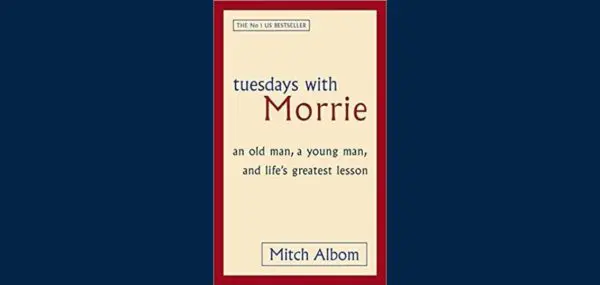Witty and imaginative, this sci-fi novel will entertain readers young and old. Watch one man’s ingenuity help him survive on a barren alien planet.
TEACHER REVIEW | by Marina Vladova
Andy Weir’s science fiction novel is about Mark Watney, a smart-alecky astronaut stranded on Mars after a brutal windstorm. Interspersed with cliffhangers, the novel is rather narrow, reading more like a survival manual than a narrative. Nonetheless, it is a good read for teens because it is about creatively coping with constraints and addressing problems using reason and imagination.
Although Mars is ecologically unfit for human life, Watney uses what he has to survive. “Duct tape is magic and should be worshiped,” he says. And his survival is a result of his creative response to an unfamiliar habitat.
A trained botanist and mechanical engineer, Watney employs MacGyver-like resourcefulness to do things like make water from carbon dioxide and hydrazine or rocket fuel from water. However, while Watney’s biological drive, information-seeking, and ingenious feats are impressive, the novel fails to evoke narrative empathy.
Russian author Anton Chekhov believed that the writer should never confuse solving a problem with stating a problem correctly. He claims only the latter is the writer’s obligation. Weir details and resolves a slew of technical quandaries but fails to address emotional and philosophical vexations associated with the abysmal loneliness after being left behind to an indifferent, impersonal landscape. Nuanced dialogue, imagery, and subtlety are deficient in a novel that could have intensified the reader’s sympathetic identification with Mark Watney’s grief and joy.
Weir’s novel could have been an evocation of a stark, forbidding, and perhaps beautiful landscape along the lines of Edward Abbey’s arid terrain or Joseph Conrad’s impenetrable darkness. Or, it could have explored the pain of separation from the familiar.
Although one might argue that The Martian is a genre novel and therefore does not need to do any of those things, what attracts us to good science fiction is least of all the science. Even though Ray Bradbury’s work has the formal properties of science fiction, he attends to language. We linger on his words: “The rocket stood in the cold winter morning, making summer with every breath of its mighty exhausts” (from Bradbury’s Martian Chronicles). This kind of writing demands closer and slower reading and engages us in higher-order thinking.
While The Martian is stylistically deficient, it can nonetheless be a valuable read for teenagers. As a pragmatic and tenacious risk-taker, Watney demonstrates qualities that we want to instill in our teens, who in all probability will also find themselves in unfamiliar habitats. As Terence, the ancient Roman playwright, said, fortune favors the bold.

TEEN REVIEW | by Jacob Conley
Mars, on average, lies roughly 140,000,000 miles from Earth. The atmosphere is 96 percent carbon dioxide. It’s also 100 times thinner than Earth’s, allowing dangerous amounts of UV rays, as well as meteors, to reach the surface. Huge dust storms roam the planet, carving out canyons and valleys from the rust-stained surface. The land is pockmarked by hundreds of thousands of meteor craters. It is a barren planet—a frozen wasteland completely devoid of life … except for one lone individual: The Martian.
The Martian is actually a man: a biologist/engineer/astronaut named Mark Watney. Stranded on Mars after a dust storm forces his crew to abandon him—and with all of Earth believing him to be dead—Watney must find a way to survive. While Watney is not the sole character in Andy Weir’s novel, he is the focal point of the story and, luckily, he is interesting enough to keep the reader engaged as the story progresses. His humor and ingenuity drive the novel, as he manages to overcome obstacle after obstacle with his clever ideas.
However, I would not say that Watney is a particularly dynamic character. Neither his mental nor emotional state are truly investigated or developed apart from the occasional comment of panic or loneliness. For the most part, Watney is a wise-cracking, quick-thinking astronaut and nothing more. His character is fleshed out somewhat in his interactions with his crew members. Specifically, messages that he sends to them later in the novel reveal a more compassionate and serious side to his personality that is never really illustrated anywhere else.
The story itself is entertaining, but often predictable. Weir manages to throw us a few curveballs, just as the reader begins to believe that Watney’s situation is safe and stable. These challenges that Watney endures help to entice the reader; however, the major plot twists are foreshadowed by a sudden shift to a third-person omnipotent narrator that feels awkward and unnecessary.
The writing in general is somewhat bland, except for Watney’s humorous and colorful language. Also, most of the novel consists of Watney explaining nearly every detail of every situation that befalls him. Some may find this boring or annoying at times; personally, I found it to be fascinating. According to Weir, the entirety of the novel is scientifically accurate in theory. Readers looking for an action-packed, alien-filled novel such as H.G. Wells’s The War of the Worlds may be disappointed; however, The Martian is an entertaining novel that I would recommend to anyone who enjoys a daring sci-fi adventure.





